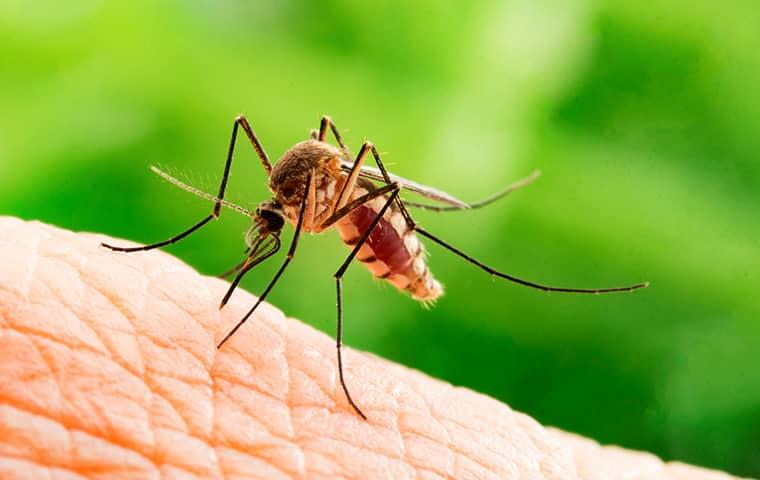Dengue fever is a mosquito-borne viral infection that affects millions of people worldwide each year. The primary vector for the dengue virus is the Aedes mosquito, particularly Aedes aegypti. Controlling these mosquitoes is critical to reducing the spread of dengue. In this comprehensive guide, we will explore effective strategies to control mosquitoes and prevent dengue outbreaks.
Understanding Dengue and Its Vector
Before delving into mosquito control strategies, it’s essential to have a clear understanding of dengue and its primary vector:
1. Dengue Fever: Dengue fever is a viral illness caused by the dengue virus. It is transmitted to humans through the bites of infected Aedes mosquitoes. Symptoms of dengue can range from mild fever to severe, potentially life-threatening dengue hemorrhagic fever.
2. Aedes Mosquitoes: The Aedes aegypti and Aedes albopictus mosquitoes are the primary vectors for the dengue virus. These mosquitoes are daytime biters and can breed in small, stagnant water sources.
Effective Strategies for Controlling Mosquitoes in Dengue-Prone Areas
Controlling Aedes mosquitoes and reducing the risk of dengue transmission involves a combination of preventive measures and public health initiatives. Here are some effective strategies:
1. Eliminating Breeding Sites:
Inspect Your Property: Regularly inspect your property for potential breeding sites. Look for containers, such as buckets, flower pots, tires, and gutters, that can collect and hold stagnant water.
Empty and Clean: Empty, clean, and dry out these containers. Stagnant water is where Aedes mosquitoes lay their eggs.
Cover or Dispose: Cover containers or dispose of them properly to prevent water accumulation.
2. Promoting Community Cleanliness:
Community Cleanup Campaigns: Encourage and participate in community cleanup campaigns to remove potential breeding sites from public spaces.
Education and Awareness: Raise awareness about dengue and the importance of eliminating stagnant water in your community.
3. Use of Larvicides:
Larvicides: Larvicides are chemical or biological agents used to kill mosquito larvae in water sources. They are effective in preventing the development of adult mosquitoes.
Professional Pest Control: Consider seeking professional pest control services that can apply larvicides in your area.
4. Mosquito Nets and Screens:
Use Nets: Sleep under mosquito nets, especially during the daytime, to prevent mosquito bites.
Install Screens: Install window and door screens to keep mosquitoes out of your home.
5. Personal Protection:
Wear Protective Clothing: When outdoors in dengue-prone areas, wear long-sleeved shirts, long pants, socks, and shoes to minimize exposed skin.
Use Repellents: Apply mosquito repellent on exposed skin. Look for products containing DEET, picaridin, or oil of lemon eucalyptus.
Avoid Peak Biting Times: Aedes mosquitoes are most active during early morning and late afternoon, so be especially cautious during these times.
6. Fogging and Spraying:
Residual Insecticides: Local authorities may conduct indoor and outdoor fogging or spraying of residual insecticides to control adult mosquitoes.
Community Involvement: Cooperate with community fogging and spraying efforts to ensure coverage in your area.
7. Environmental Management:
Community Drainage: Ensure that community drainage systems are well-maintained to prevent waterlogging.
Reduce Greenery: Trim overgrown vegetation that can create shaded, moist areas where mosquitoes hide.
8. Public Health Campaigns:
Health Education: Engage in health education programs, workshops, and campaigns organized by health authorities to promote awareness of dengue and its prevention.
Community Engagement: Encourage active participation in community health initiatives aimed at dengue control.
9. Active Surveillance:
Report Dengue Cases: If you or someone in your community is diagnosed with dengue, it is essential to report it to local health authorities. This helps in identifying and controlling outbreaks.
10. Vaccination:
Dengue Vaccination: In some regions, dengue vaccines are available and can offer protection against the virus. Consult with a healthcare professional regarding the availability and suitability of dengue vaccination in your area.
Conclusion
Dengue is a preventable disease, and controlling its transmission largely depends on effective mosquito control services strategies and public awareness. By actively participating in mosquito elimination efforts, adopting personal protective measures, and promoting community cleanliness, you can significantly reduce the risk of dengue in your area. Remember that dengue control is a collective effort, and it is essential for individuals, communities, and health authorities to work together to prevent the spread of this potentially life-threatening disease.

